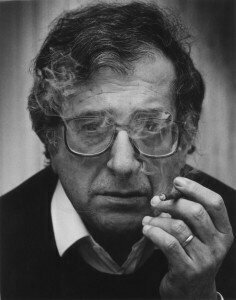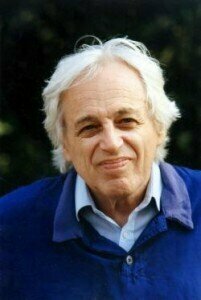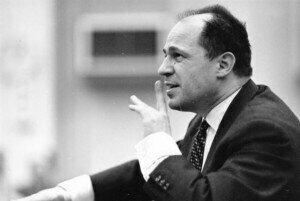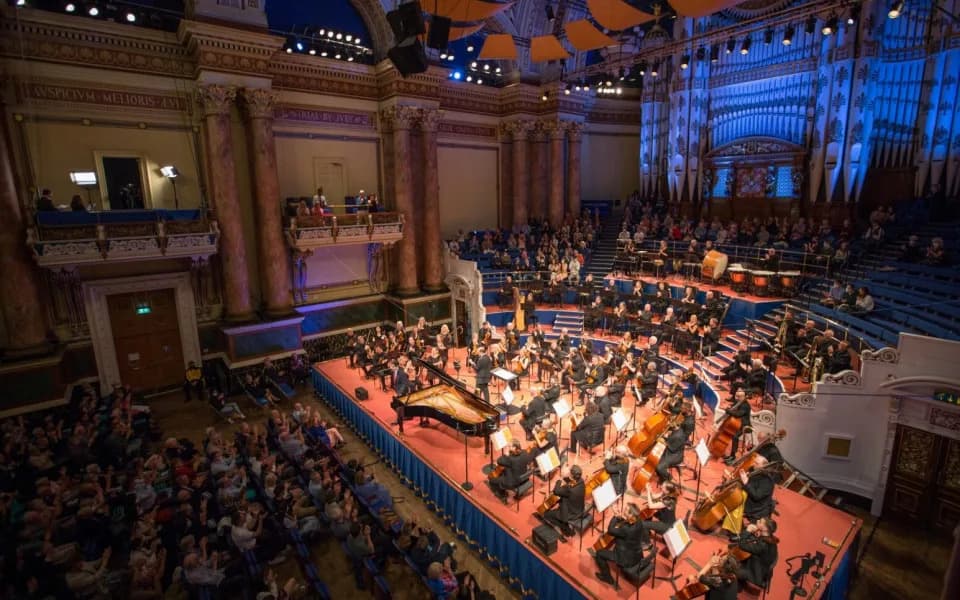
Berio
Contemporary music is rarely performed in Hong Kong, except the commissioned works for orchestras. Very often the works by important 20th-century composers are missing or only programmed sporadically, such as Stockhausen, Schoenberg, Berg, Berio and Boulez. There are so many gems that are left undiscovered to the general public.
Undeniably, the programming of Hong Kong Philharmonic (HKPhil) has been more and more adventurous. Looking back HKPhil’s programme in 2015/16 Season, one could only name a few contemporary composers. Tan Dun, Chen Qigang, Pärt, Ligeti and a few more. For 2018/19 Season, the programme features relatively more contemporary works, including those composed by John Corigliano, Christopher Rouse, Magnus Lindberg. However, important figures in 20th century are still missing. There is seemingly a “gap” in the repertoire – between middle-Romantic music and new music composed in recent decades.

Ligeti
It is understandable that contemporary music may demand higher level of technical facility from players and face resistance from some local audience. As Hong Kong orchestras are transforming into international ones, why shouldn’t they step out of their comfort zones and incorporate lesser known works gradually?
It is true that concerts entirely devoted to contemporary music may not be attractive to local audience. However, is it possible to combine both standard repertoire and newer compositions in one concert? The standard repertoire offers incentives for audience to attend the concerts, which should also address concerns over subscription sales. At the same time, they will be exposed to contemporary music as well. Pierre Boulez, who is often regarded as the “Titan of Modernism”, once conducted a concert consisting of Handel, Mozart, Varèse, Webern and Ligeti when he was the Chief Conductor of New York Philharmonic.
Moreover, a theme can be used to connect pieces drawn from the core repertoire and newer works. For instance, the theme of a HKPhil’s concert in March 2018 conducted by Jun Märkl is “ocean”, where the programme consisted of Toshio Hosokawa’s Circulating Oceans, Mendelssohn’s The Hebrides Overture and Debussy’s La Mer. In fact, more concerts with themes can be held in the future, as they can facilitate audience’s understanding of the newer compositions.
Hosokawa: Circulating Oceans (Orchestra Sinfonica Nazionale della RAI, Jonathan Stockhammer)
Public education is also an indispensable element in promoting contemporary music. Under Boulez’s conductorship from 1971 to 1977, New York Philharmonic introduced various innovative events, such as Rug Concerts and Prospective Encounters. For Rug Concerts, the target audience was primarily teenagers and they literally sat on rugs listening to contemporary music. For Prospective Encounters, audience had the chance to interact with composers and performers. The same may be applied to Hong Kong, but this, of course, hugely depends on orchestras’ commitment and devotion. Undoubtedly, support from other parties is also needed, since the tickets should be sold at an affordable price for the youth.

Boulez
Berio: Sinfonia, third movement (Orchestra of the Academy of Santa Cecilia, Pappano)




As the author mentioned Boulez multiple times I’d guess it’s safe to assume that he’s an ardent admirer of this great artist. But to say the upcoming HK Phil season misses “big” contemporary names is simply not true. I am not a frequent patron of the HK Phil but I do admire their courage this time around. Take a look at the roster: John Adams, Glass, Steve Reich, Lindberg, Takemitsu, Corigliano – and that’s only from the “Preview”! And wait: they are opening the season with violin concerto of Stravinsky and Britten, not yet another Tchaikovsky or Mendelssohn or the Butterfly Lovers!
One can only wonder how the author classifies composers as “important” – but the aforementioned composers are just as relevant to the modern music movement. At the end of the day everyone has his own “greatest” list. But discounting the HK Phil’s effort in bringing new(er) music to a conservative audience just because a favourite name is not there is regrettably unfair. I for one have always thought that themes are just plain, lazy programming. And thank goodness the HK Phil are staying away from that comfort zone for once.
There’s certainly nothing wrong with artists prioritizing with works that they do best. Let’s appreciate what’s there instead of fussing about what’s not. On that note, I am eagerly waiting for Argerich’s take on the Concord Sonata, or the Emerson recording the Penderecki’s string quartets. But I certainly won’t be disappointed if they don’t!